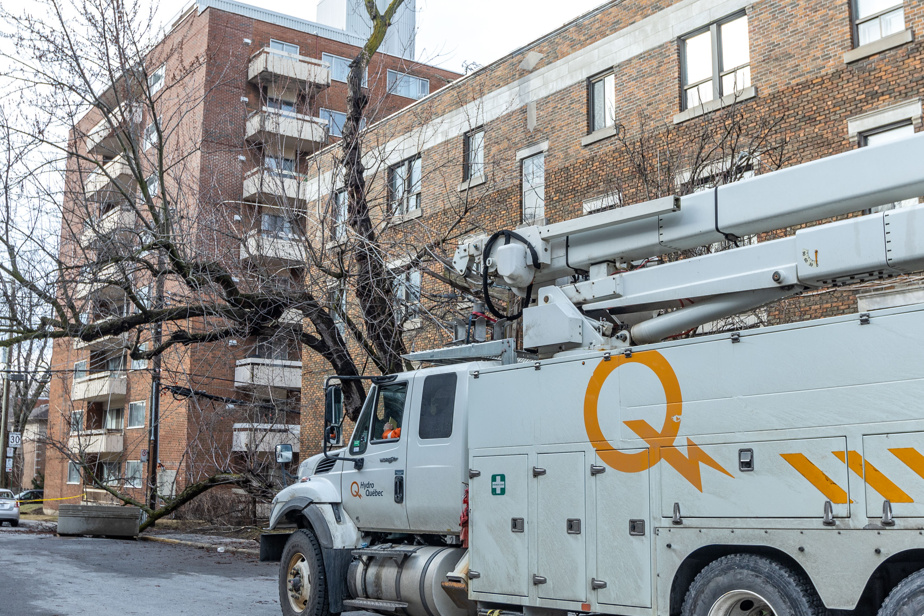The number of power outages is on the rise and the number of complaints received by Hydro-Québec is also increasing, according to the 2022 report filed Monday by the state corporation at the Régie de l’énergie.
The number of complaints received by Hydro-Québec and the Régie de l’énergie about the electricity distributor increased by 27% between 2021 and 2022, which the Crown corporation attributes to the normal resumption of its activities after the exceptional situation caused by the pandemic. Hydro-Québec notably resumed the collection of unpaid accounts which had been suspended during the pandemic.
The largest share of the 1,979 complaints addressed to Hydro-Québec last year relate to the electricity network and its maintenance and are linked to the increase in the number and severity of outages that have occurred during the year.
The reliability of the electricity network also deteriorated last year and the duration of outages per customer increased by 82%, to 230 minutes of interruption. Hydro-Québec attributes this poor performance to two major weather events: the derecho, an episode of thunderstorms and strong winds that occurred in May, and an early snowstorm in December 2022. During each of these two events, a half -million customers were deprived of electricity.
Excluding these major weather events, the average duration of outages is still up 17% compared to 2021.
The media have reported several cases of new customers waiting a long time before being connected to the electricity network, which is confirmed by the increase in the connection time reported by Hydro-Québec. The average connection time fell from 7.9 days to 11 days between 2021 and 2022. The increase in connection requests as well as the catch-up in connections that had to be postponed during the pandemic explain these longer delays, according to Hydro-Quebec.
Due to the lack of skilled labour, the state-owned company also reports being less able to meet its commitments to connect new customers.
In terms of energy efficiency, Hydro-Québec reports better than expected performance in its forecasts for the period from 2018 to 2022. Energy savings (which are approaching 3,000 gigawatt hours) represent 130% of the objective set for the period .
Some of the information that should normally be included in the balance sheet is not there, due to the change in the structure of the organization. When she arrived at the head of Hydro-Québec, the former CEO Sophie Brochu had abolished the Generation, Distribution and Transmission divisions with which the company had operated for decades.
Thus, Hydro-Québec says it is unable to provide the evolution of its workforce “due to the evolution of the company towards “Une Hydro”. »
The annual review of Hydro-Québec’s activities is what replaces the review of costs and the justification of rate increases, which were previously an annual exercise carried out by the Régie de l’énergie and the stakeholders. This exercise is now done every five years and it will be necessary to wait until 2025 to have full accountability from Hydro-Québec.
